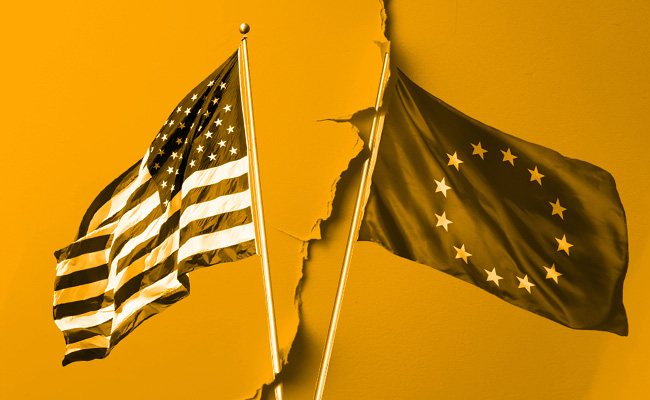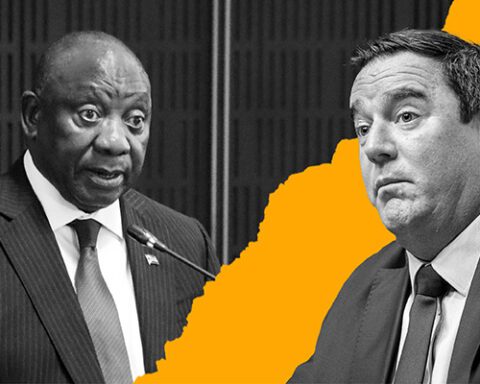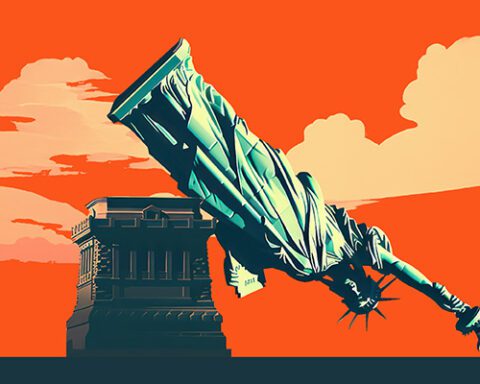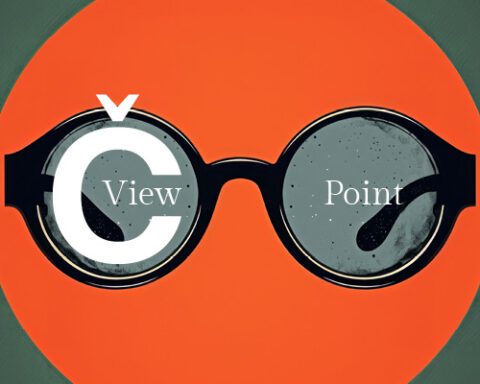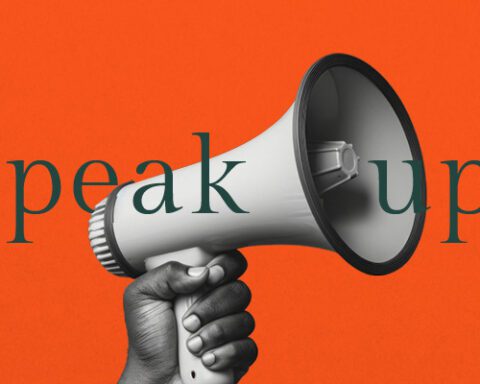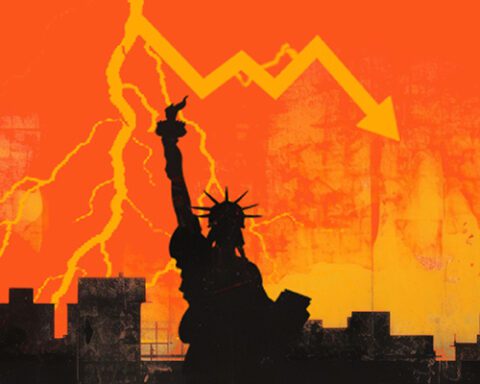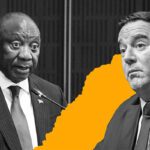Russia invaded Ukraine on February 24 2022, having annexed that sovereign democratic state’s Crimea region 10 years earlier. “Neutral” Finland and Sweden demonstrated their fears and dismay about this in Europe by joining the North Atlantic Treaty Organisation (Nato).
Europe and Joe Biden’s administration imposed sanctions against Russia, and the International Criminal Court accuses Russian President Vladimir Putin of war crimes.
And then comes Donald Trump, president of the most powerful Western state, this week aligning himself with Putin while his administration insults European democracies.
Trump has in recent days repeated almost every Putin accusation against Ukraine and its president, Volodymyr Zelensky. “You should never have started it,” he said. Zelensky is “incompetent”, and a “dictator”, supported by only 4% of his citizens.
Ukraine might become Russian, or maybe not, he said. Ukraine must not become part of Nato and Zelensky needs to move quickly or he won’t have a country anymore, he added, for good measure.
The slurs follow a meeting between Trump’s team of senior envoys and their Russian counterparts in Saudi Arabia this week to negotiate a peace plan for Ukraine. Ukraine, Europe and the UK weren’t invited, yet the initial talks were hailed as a victory for Putin by Russian media, and are likely to precede a one-on-one encounter between Trump and Putin next week.
The US-Russia session led to a flurry of emergency summits led by French President Emmanuel Macron and 15 other heads of state in Europe and the Baltic region to discuss Trump’s turnaround. Macron, German Chancellor Olaf Scholz, UK Prime Minister Keir Starmer, and the Polish and Baltic government leaders have all expressed their distaste for the Trump administration’s actions and statements.
The thing is, it’s not a complex operation to prove Trump’s statements false. The reasons Putin initially gave for his military invasion of Ukraine were: that the Zelensky government are Nazis (Zelensky is Jewish) and that Russia must de-Nazify the country; that Ukraine isn’t really its own nation but is part of Russia; and that Russia had to liberate and protect Russian speakers in eastern Ukraine.
Unmasking the lies
Putin’s plan three years ago was to take over Ukraine within a few days. The fact that Ukraine has since fought unexpectedly bravely and quite successfully against the vastly superior Russian forces makes it clear that this country’s people see themselves as a sovereign, separate nation – and as Europeans.
Today Putin maintains that Ukraine is working with Nato to threaten Russia’s security. While there have been many debates over the past three years about whether Nato’s creeping presence closer to Russia was enough provocation for Russia to occupy its neighbour, no-one can deny that there was never any form of military threat from Ukraine itself. It is also absurd to argue that Nato, a defensive alliance, had plans to invade Russia.
And then there’s the “dictatorship” question. Zelensky was elected president on April 21 2019 with 73% of the vote. The only opinion poll about his popularity was conducted recently by the Kyiv International Institute of Sociology, and the finding was that 57% of his citizens trust him. Due to the war, martial law was declared in the country and the election was thus postponed – as happened in Britain and elsewhere during the last world war. Millions of citizens have temporarily fled to neighbouring states and elsewhere, and tens of thousands of voters live in areas occupied by Russia.
As Keir Starmer and other European leaders said this week, this makes a peaceful, fair and successful election impossible.
It was enough to prompt former British prime minister and longtime Trump friend Boris Johnson to write on Twitter/X this week: “Of course Ukraine didn’t start the war. You might as well say that America attacked Japan at Pearl Harbor. Of course a country undergoing a violent invasion should not be staging elections. There was no general election in the UK from 1935 to 1945. Of course Zelensky’s ratings are not 4%. They are actually about the same as Trump’s”.
Yet despite the glaring inaccuracies, the result of Trump’s statements is that Ukraine and Zelensky’s negotiating position in the intended peace process has been completely undermined.
“Trump’s statements are not intended to be historically accurate but to shock Europeans into action. In particular, the US can see $300bn of frozen Russian assets – mainly in Belgium. That is cash that could and should be used to pay Ukraine and compensate the US for its support,” wrote Johnson.
“Why is Europe preventing the unfreezing of Putin’s cash? The US believes Belgium, France and other countries are blocking. It’s absurd. We need to get serious and fast.”
Starmer, declared this week: “We have to recognise the new era we are in, not cling hopelessly to the comforts of the past. It is time for us to take responsibility for our security, for our continent.”
There are analysts who believe Trump is trying to appease Putin to sour his relationship with China. This assumes long-term strategic thinking that is nowhere visible in the Trump administration.
But even if this is true, Ukraine will clearly pay the price. It now seems inevitable that an agreement between Trump and Putin will allow Russia to keep the territory it occupies in Ukraine and incorporate it into Russia. The struggle for Europe now is to prevent the “normalised” Putin from further foreign adventures.
Rapprochement with Europe
Trump’s bromance with Putin makes it all the more ironic that Washington cites the South African government’s friendship with Russia as one of the reasons for sanctions.
South Africa’s ties with Europe have always been stronger than those with the US. Britain and the Netherlands were our colonial rulers and during the three decades before 1994, the anti-apartheid movements especially in these countries, but also in countries like Sweden and Ireland, contributed much to the pressure on the apartheid regimes.
If the government’s approach to foreign affairs had been more strategic and agile and less about ideology and struggle nostalgia, a new rapprochement with Europe (and the UK) could have held great value for South Africa. It could yet.
European states don’t have the Trump administration’s obsession with South Africa’s policy of affirmative action and black empowerment. Europe doesn’t try to be the only bull in the international kraal and accepts that we must maintain a healthy relationship with our largest trading partner, China.
At least four EU member states officially support South Africa’s case against Israel at the international court of justice – Ireland, Belgium, Slovenia and Spain – while most others maintain official neutrality on it. This case is widely cited as the main reason why the Trump administration now wants to isolate South Africa, and undermine our presidency of the G20 in 2025. Yet we still enjoy European support.
So, while Trump is isolating America more than at any time in this country’s existence, South Africa’s government of national unity must throw everything into the fight – both to curry favour with the Trump administration, and to insert ourselves into this rearrangement of global politics. Pretoria must ensure that we benefit.
Sign up to Currency’s weekly newsletters to receive your own bulletin of weekday news and weekend treats. Register here.
